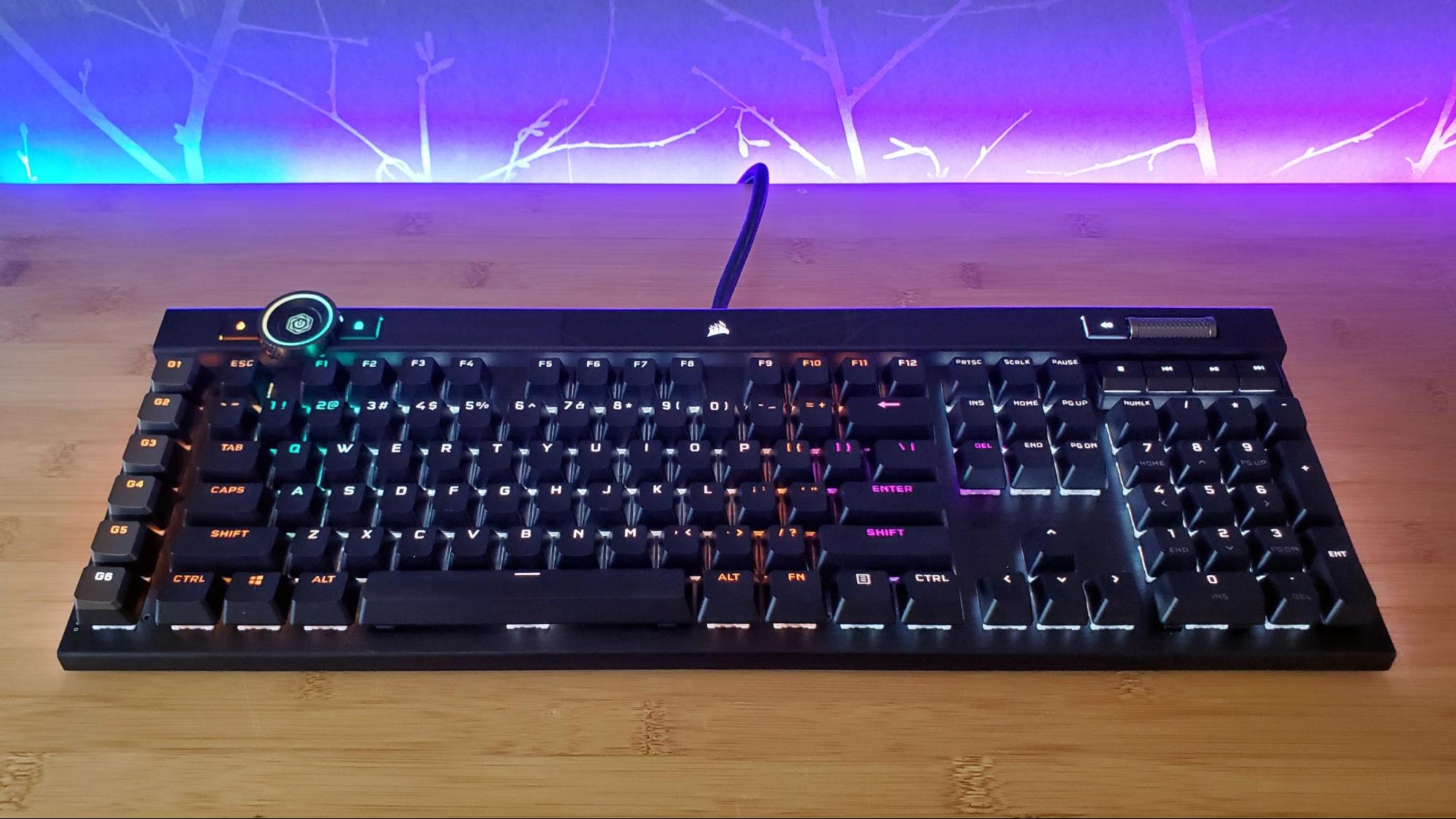When it comes to choosing a keyboard, there are two main options: mechanical and optical. Both of these types of keyboards offer advantages and disadvantages, and the choice between them depends on personal preferences, typing style, and intended use. In this article, we will examine the differences between optical and mechanical keyboard and help you determine which one is better suited for your needs.
Optical keyboards are a newer technology that has been gaining popularity in recent years. They work differently from mechanical keyboards, which use physical switches to register keystrokes. Instead, optical keyboards use infrared light to detect when a key has been pressed. This allows for faster response times, as there is no need for a switch to physically travel down and back up again. Optical keyboards are also more durable than mechanical keyboards, as there are no moving parts that can wear down over time. This means that they can last longer and require less maintenance. Additionally, optical keyboards are typically quieter than mechanical keyboards, which can be beneficial in shared workspaces.
However, there are some potential downsides to optical keyboards. They may not have the same tactile feel as mechanical keyboards, which some users prefer. Additionally, optical keyboards may not offer the same level of customization options as mechanical keyboards, which are often highly customizable with various switch types, keycaps, and layouts. Lastly, optical keyboards may be more expensive than mechanical keyboards, which can be a consideration for budget-conscious consumers. Ultimately, whether an optical keyboard is better than a mechanical keyboard will depend on the specific needs and preferences of the user.
Mechanical Keyboards: Advantages and Disadvantages
Mechanical keyboards have been around for a long time and are a popular choice among gamers and heavy typists. The switches on mechanical keyboards are made up of individual components that register keystrokes by completing an electrical circuit. The tactile feedback provided by the mechanical switches makes typing feel more responsive and satisfying.
Advantages of Mechanical Keyboards:
Durability:
The switches on mechanical keyboards are designed to last for a long time, making them a reliable choice for heavy use. Many mechanical keyboards are rated for millions of keystrokes, meaning they can withstand years of use without requiring replacement.
Customization:
Mechanical keyboards offer a high degree of customization, from choosing different switch types to swapping out keycaps. This allows users to tailor the keyboard to their individual preferences and make it a unique reflection of their personality.
Disadvantages of Mechanical Keyboards:
Noise:
Mechanical keyboards are known for their loud clicking sound, which can be distracting in quiet environments. This can be a particular problem in an office setting where the noise level can affect the productivity of other workers.
Cost:
Mechanical keyboards can be expensive, with some models costing several hundred dollars. While the durability and customization options can justify the cost for some users, it can be a barrier for others.
Optical keyboards are a relatively new technology and use a different mechanism to register keystrokes. Instead of mechanical switches, optical keyboards use a beam of light to detect key presses. When a key is pressed, it interrupts the light beam, registering the keystroke.
Advantages of Optical Keyboards:
Quiet Operation:
Unlike mechanical keyboards, optical keyboards are virtually silent. This makes them a good choice for use in quiet environments, such as an office or library.
Low Maintenance:
Because they don’t have the moving parts found in mechanical keyboards, optical keyboards are generally more reliable and require less maintenance.
Disadvantages of Optical Keyboards:
Lack of Tactile Feedback:
One of the main complaints about optical keyboards is the lack of tactile feedback. This can make typing feel less satisfying, and it can take some time to get used to the lack of feedback.
Limited Customization:
Optical keyboards generally offer less customization options than mechanical keyboards. While there are some models that allow for custom keycaps, the switches themselves are not as easily replaceable.
Choosing Between Optical and Mechanical Keyboards
When choosing between optical and mechanical keyboard, the decision ultimately comes down to personal preference. However, there are some factors to consider that can help guide the decision-making process.
Typing Style:
If you are a heavy typist who prefers a tactile feedback, then a mechanical keyboard may be the better choice. However, if you prefer a quieter typing experience, an optical keyboard may be more suitable.
Intended Use:
If you are primarily using the keyboard for gaming, a mechanical keyboard may offer advantages due to the customization options and tactile feedback. However, if you are using the keyboard in a quiet environment, such as an office, an optical keyboard may be more appropriate.
Budget:
Mechanical keyboards can be expensive, with some models costing several hundred dollars. If budget is not concern, an mechanical keyboard may be a more affordable option.
The choice between an optical keyboard and a mechanical keyboard depends on personal preference, typing style, and intended use. Mechanical keyboards are known for their tactile feedback, durability, and high degree of customization, but they can be noisy and expensive. On the other hand, optical keyboards are virtually silent, low maintenance, and more affordable, but they lack tactile feedback and customization options.
When choosing between these two types of keyboards, users should consider their typing style, intended use, and budget. Heavy typists who prefer tactile feedback may prefer mechanical keyboards, while those who prefer a quieter typing experience may prefer optical keyboards. Gamers may find mechanical keyboards advantageous due to the customization options and tactile feedback, while those using the keyboard in a quiet environment, such as an office, may prefer an optical keyboard. Budget is also a factor, as mechanical keyboards can be expensive. Ultimately, the choice between optical and mechanical keyboards is a matter of personal preference and individual needs.
In the conclusion, optical keyboards and mechanical keyboards both have their advantages and disadvantages. While optical keyboards offer faster response times and greater durability, they may not provide the same level of customization or tactile feedback as mechanical keyboards. Whether an optical keyboard is better than a mechanical keyboard will depend on the specific needs and preferences of the user. It is important for users to consider their own priorities when selecting a keyboard, such as typing experience, noise level, durability, and cost. Ultimately, the decision between an optical keyboard and a mechanical keyboard comes down to personal preference and what factors are most important to the user. Both types of keyboards have their place in the market and can offer a comfortable and efficient typing experience depending on the user’s individual needs.

